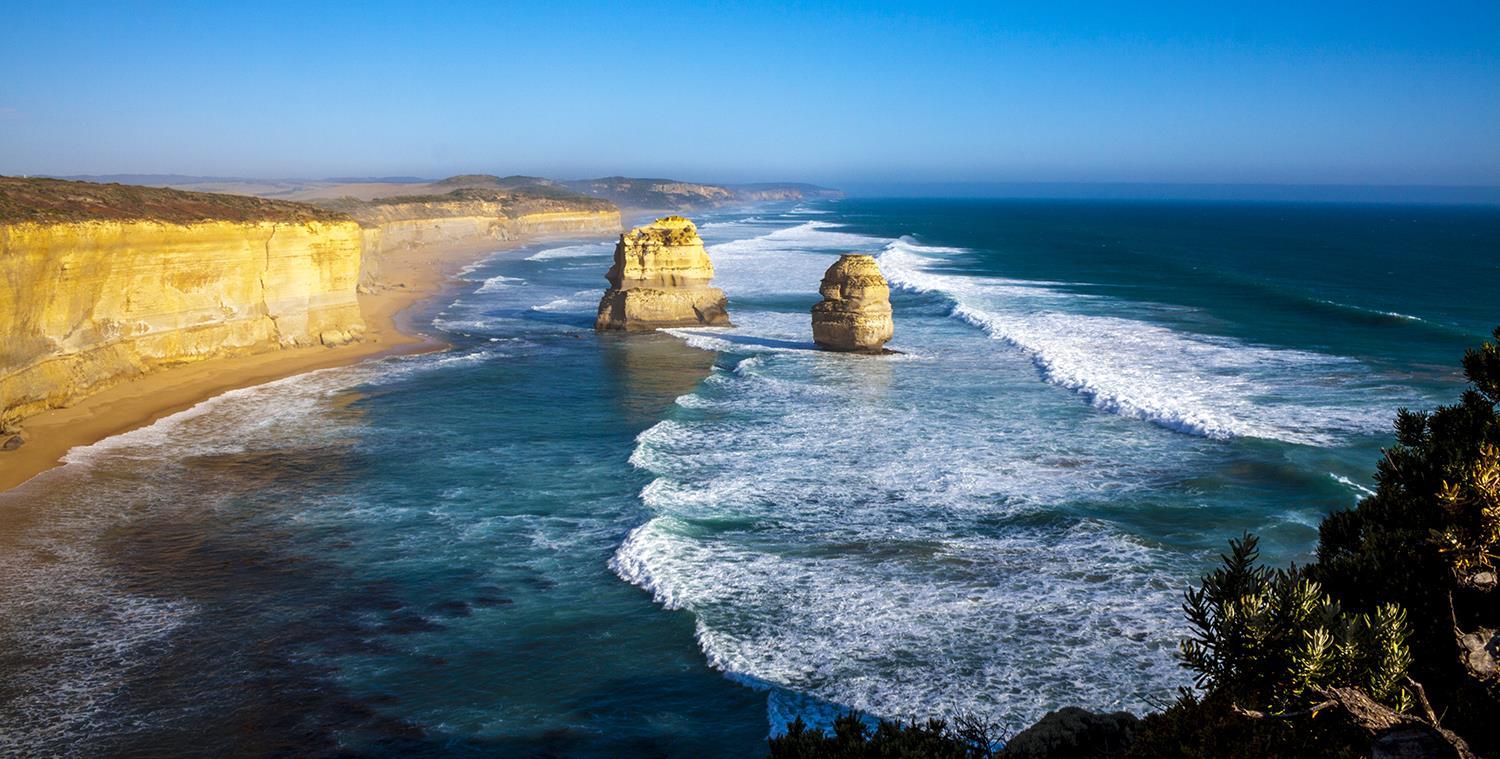

18 – POINT PLAN
WATER POLICY REFORM IN VICTORIA

FOOD + FIBRE

GREAT SOUTH COAST



Executive summary
Productive use of the regions groundwater systems could;
○ play a significant role in advancing the regions agricultural enterprises and industries
○ better realise the regions’ economic potential by working with Government to develop policy to support this
Food and Fibre Great South Coast (FFGSC) is seeking the support of the Victorian government to help realise this potential through 18 options for water policy reform
Willcontinue to work with FFGSC to further investigate the 18 options recommended in this report
Policy Issue
1. Current groundwater take and use licensing application processes be streamlined to enable producers and landholders to create efficiencies and reduce complexities.
DELWP Response
➢ Address through Statewide Licensing Committee
➢ Already included in Review of Take and Use Licence Project
2. Invest in measures that support license holders to navigate the application process, particularly environmental, legal and procedural aspects.

investigation supported
Policy Issue
3. Maximum term should be increased to 30 years.
DELWP Response
4. If maximum tenure periods cannot be increased, license renewals should be guaranteed where 100% compliance with license conditions is demonstrated.
➢ Current policy - 15 year tenure balances security for licence holders and supports RWCsto protect/manage the resource.
5. The processes and negligible risk profile for license renewals should be clearly communicated to the investment community (3-year awareness-raising horizon needed to allow certainty to translate through to investor risk portfolios).
➢ WaterAct 1989 doesn’t currently support increased licence terms or guaranteed renewal – requires legislative amendment.
➢ Legislative amendments require extensive, statewide, stakeholder engagement. Further investigation in licensing
Policy Issue
6. Land and water bundling presents issues for investors in areas of flexibility and choice - entitlements should be unbundled.
DELWP Response
➢ No current plans to unbundle entitlements to groundwater – no clear evidence supporting the benefits.
7. Where unbundling is not in place, a more precise separation of works licenses from bundled land and water entitlements should be introduced.
➢ DELWP intends to focus on other improvements to the licensing framework

Policy Issue
8. Regulatory barriers to upstream trading should be removed where there is zero environmental risk (environmental protection is already provided for under the Act).
9. Decommissioned and unmonitored water monitoring sites should be reinstated given their critical role in ensuring optimal resource management.
10. Transparent and accessible surface water and groundwater trading systems should be introduced to allow for the efficient and effective trade of water entitlements – as well as appropriate supporting infrastructure.
Further
DELWP Response
➢ DELWP is considering options through the Review of Take and Use Licensing including:
˗ Improved communication/accessibility of trade rules
˗ Increase flexibility/reduce barriers
˗ More accessible info about water management/trade rules
˗ Investigate local opportunities to made trade rules more flexible
˗ Pilot programs to test new technologies

Policy Issue
11. Flexible temporary entitlement trading should be streamlined to reduce market risk and increase efficient use of water resources in the region.
DELWP Response
➢ Further investigation required to fully understand this proposal
12. Provisions for the agile approval of temporary license trades should be introduced during dry years.
13. Reconsider trade boundaries to simplify temporary trades where appropriate.
14. Communicate changes to trade rules and educate stakeholders, to encourage participation and uptake in the temporary trade market.

Further investigation required
Policy Issue
15. Introduce a program to undertake detailed mapping and measurement of the region’s surface water and groundwater assets (to assist with planning and monitoring investment equity with other regions).
16. Water authorities should undertake hydrological surveys in the region (frequency to be informed by environmental risk and data made publicly available). Increase licensing fees to cover cost, offset by reduced application costs for any independent hydrological surveys conducted.
DELWP Response
➢ DELWP and RWCs already undertake groundwater monitoring and mapping.
➢ Expansion of this requires increased funding (e.g. from government, via licence fees, charging water users). Therefore need to fully assess value proposition.
➢ DELWP to work with RWCs to better understand role/availability of hydrological data/resource data for the application process.
17. Water authorities should manage an open database of regional water resources so that existing assessments in license applications can be used to inform improved water management decisions

Further
investigation supported
Great South Coast Sustainable Water Strategy
Policy Issue
18. A standalone Sustainable Water Strategy is required to address the region's unique challenges and unique opportunities.
o A locally relevant implementation plan is required to set appropriate timelines and targets for strategic actions.
DELWP Response
➢ Investigate further.
➢ No decisions made yet about timing for development of a new SWS in Western Victoria.
➢ Any future decisions will consider the specific challenges and opportunities across the region.
➢ Work on FFGSC priorities can commence now and do not need to wait for a SWS.

Further investigation supported
• Include supported FFGSC policy options in Review of Take and Use Licensing
• Investigate supported groundwater proposals through GM2030
• Continue regular stakeholder consultation with FFGSC
• Discuss development of ideas for the next sustainable water strategy
Thank you






